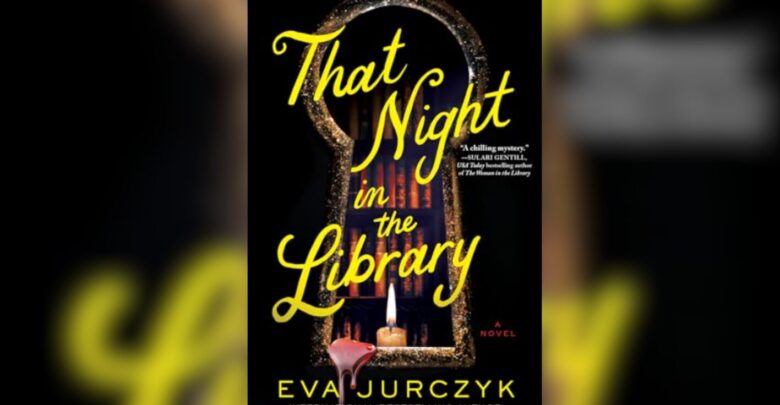Book Review: That Night in the Library
Jurczyk drives a stake through the hearts of readers through her mastery of tragedy in her new novel.
 Supplied
SuppliedToronto author Eva Jurczyk’s second novel That Night in the Library is a mystery novel that reveals the beautiful and bloody sides of humanity. Following a turbulent cast of characters, this novel is full of heart-wrenching moments in its exploration of human nature. Think Bodies, Bodies, Bodies and Murder Party meets The Secret History. Woven throughout the tale are the works of the ancient Greeks and other classical authors.
The novel follows a group of seven young adults the night before their university graduation. They scheme to perform a ritual inspired by the Eleusinian Mysteries — an initiation rite revolving around Demeter and Persephone — in the basement of their school’s library. The ritual, complete with candles, a symbolic ear of corn, and acid, is intended to release the group from both the fear of death and graduation. However, in that dark basement with no service, the ritual becomes more necessary than previously thought. The night eventually takes a dark turn and the library becomes steeped in blood. The lines between friend, stranger, and enemy grow more blurred by the second.
It was the premise of the novel that caught my interest first. However, it was the seven main characters that kept me invested. Initially the cast felt overwhelming as each new chapter revolved around a new character. The advantage of this is that I understood a character’s motives on a level their fellow characters couldn’t. Seeing a betrayal unfold, and then getting to read the betrayed person’s woes heightened the tragic quality of the novel.
Even though Jurczyk had a habit of rambling on occasion, the prose was simple. She demonstrated an in-depth knowledge of how to construct a tragedy. Every outcome in the novel could be traced back to someone’s choice, no matter how small. I felt like I was a helpless audience member watching a Greek tragedy unfold. I knew what was going to happen, yet was powerless to stop it. The detailed attention to tragedy made for a predictable ending. Still, I felt the urge to continue reading to see the inevitable heart-break.
One of the major themes is that all people are capable of wrong-doings — a timeless concept. The novel complimented this idea with frequent references to other literature. Modern characters were paralleled with the ancient. The theme of the human potential for both good and violence is exemplified by a repeated quote from Alfred Tennyson’s poem “Ulysses:” “‘tis not too late to seek a newer world.” References to The Bacchae, The Iliad, and The Homeric Hymns further helped develop the central theme.
Overall, That Night in the Library entices with promises of rituals and betrayals, and delivers beautiful tragedy. It can serve as a satisfying introduction to the mystery genre for readers not familiar with the tropes. And for the experienced readers, the characters and literary references create a unique experience that compensates for the predictable ending. Besides, the appeal of a tragedy is knowing what will happen and being powerless to prevent it.




